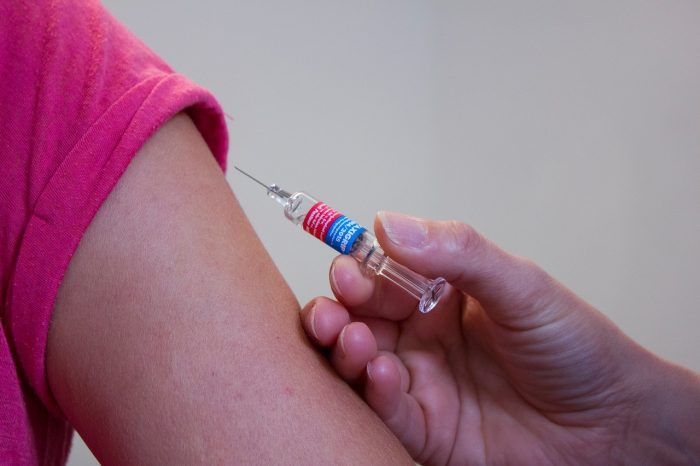FDA approves new COVID-19 booster from Pfizer and Moderna
The U.S. Food and Drug Administration has approved a new COVID-19 booster, which will protect against the virus’s circulating strain.
With hospitalizations and cases rising in Suffolk County and nationwide, single booster shots from Pfizer-BioNTech and Moderna should be available soon.
Local doctors recommended that people at the highest risk consider getting the shot.
That includes those with other medical issues, such as a 45-year-old smoker or a 65-year-old with diabetes.
Health care providers generally believe people who recently had COVID have at least three months of protection, although no definitive rule exists.
“If you had it in August, you probably don’t need to get a booster now,” said Dr. Sharon Nachman, chief of the division of pediatric infectious diseases at Stony Brook Children’s Hospital. “If you had it in January and you’re high risk, you should get it now.”
Nachman added that no study has indicated the age at which patients should get a booster shot.
People should consult their physicians to determine how their underlying health can affect the decision to get an updated vaccine.
“That gets back to the doctor-patient relationship,” Nachman said.
People who are 70 years old and planning a cruise that stops in several ports might want to get a shot at least two weeks before they travel because “the last thing you want happening is to be hospitalized in a foreign country,” Nachman said.
Nachman suggested that this vaccine, like the others that people have taken, won’t prevent illnesses but will keep people from shedding the virus and can reduce the symptoms and duration of an infection.
The FDA approval of the current vaccine is welcome news because it is a “good match” for the current strain, Nachman indicated.
It’s difficult to predict how much protection the current vaccine will provide for whatever strain might be circulating in February.
When a higher percentage of the population receives the vaccine, the likelihood of new variants declines, she added.







